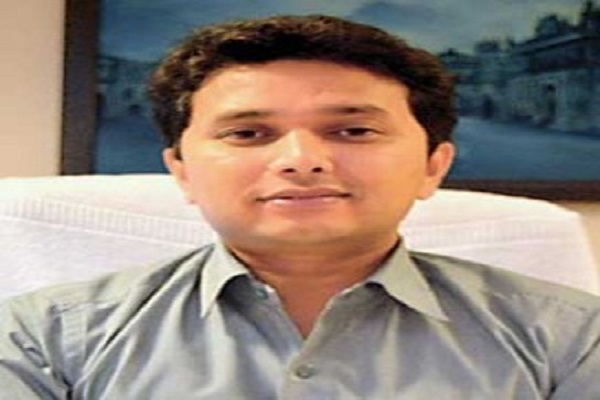
The Bhopal Municipal Corporation’s budget for 2015-16 is a vision document envisaging Bhopal on the road to a smarter, efficient, resilient and sustainable city, says Tejaswi S Naik, Commissioner, Bhopal Municipal Corporation. Excerpts from an interview with Souvik Goswami of Elets News Network (ENN).
How do you think that the ‘Smart City’ programme can change the urban landscape of India in the coming years?
Smart City is a concept wherein each citizen can go about his daily routine and livelihood without any hassle or barrier with seamless use of Technology and Design using info for his benefit in real time and reaping the dividends of a thoughtful urban planning. With coming of the 13th Five-year Plan in 2017, the idea of Smart City would acquire a new shape, thus, defining the future of major cities across the country.

The budget for the year 2015-16 has been presented recently for the Bhopal Municipal Corporation (BMC). How do you think it can help in transforming Bhopal into a smart city?
The BMC budget for 2015-16 is a vision document which envisages Bhopal on the path of becoming a smarter, efficient, resilient and sustainable city.

We are looking to increase our revenue and focus on plugging of loopholes. We plan to work in the following areas:
- Geographical Information System (GIS)- based property mapping, along with a social survey for each family residing in Bhopal under the smart card project;
- Water budgeting by making the existing systems smarter and remotely controlled;
- Wi-Fi enabled public facilities like She- lounges, e-library, Wi-Fi hotspots;
- App-based services to citizens and extensive use of app and Android platform in the daily functioning and review;
- Utility duct policy, which envisages digging free roads plus added revenue to BMC;
- Future Mass Rapid Transit based on a convergence between existing Bus Rapid Transit System (BRTS) and coming metro rail;
- Non-motorised transport (NMT) and bike sharing in possible locations; and
- Modern centralised command & control for emergency response, fleet management, HR management and O&M.
What are your plans to transform Bhopal into a smart city?
By virtue of being confident and aggressive in adoption of technology, Bhopal is now in a position to implement many of the things which may otherwise be difficult to. Learning by experiences, this year the budget of Bhopal consists of many initiatives and policies, which project a vision for making Bhopal a lively, liveable and sustainable city. Compulsory utility duct provisions in all constructions, she-lounge facilities for ladies as part of public amenities, innovative advertisement policy keeping in mind city’s aesthetics, culture and road safety, heritage policy to conserve and use city’s rich heritage, lake cell, film cell and smart city cell to encourage thought process for betterment of the city.
Do you think that ICT will play a big role in the scheme of things for the smart cities programme?
Today is the age of information, so it becomes pertinent for us to ensure that effective utilisation of resources is done. We need to have actionable data at our fingertips remarking all the possible noise in it. Data analysis based on smart technology is the key for governance, mobility or management.
What, according to you, are the major challenges for making smart cities in India?
No project or government scheme can be successful if it does not echo the sentiments of the grass-root citizens, who are the final endorser. Take example of “Raahgiri Day” in Bhopal. BMC had to just offer it to the people, after which it has been carried on and sustained by the citizens. This is a pointer to the changing times that we are living in and gives an idea about the future shape of things.
Effective implementation of the master plan and balanced development of infrastructure is the need of the hour. Chronic problems like traffic congestion, waste management, encroachment and sustainable development can be addressed through this
Effective implementation of the master plan and balanced development of infrastructure is the need of the hour. Chronic problems like traffic congestion, waste management, encroachment and sustainable development can be addressed through this.
Also, it is necessary to feel the pulse of the people. For example, apart from the usual complaints in grievances redressal of waste management, water supply and beneficiary schemes, the local government should also sense that the citizen also craves for quality lifestyle, participatory processes and value- added services. Hence, participatory budgeting from people should be done to understand as to what all they want in their city.
Be a part of Elets Collaborative Initiatives. Join Us for Upcoming Events and explore business opportunities. Like us on Facebook , connect with us on LinkedIn and follow us on Twitter, Instagram.











